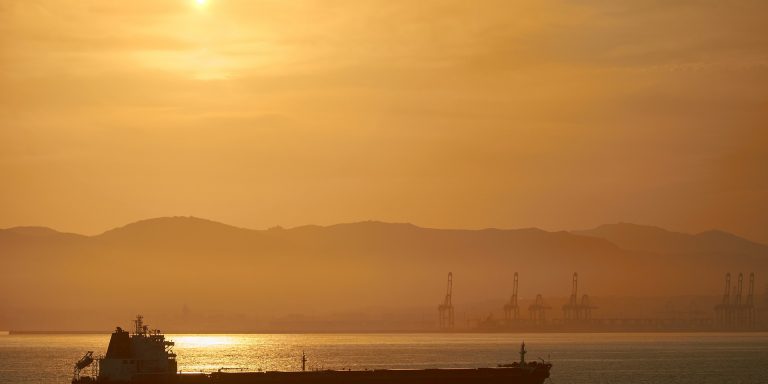INTELBRIEF
August 6, 2018
IntelBrief: Threats to Middle East Chokepoints

- Iran and its regional allies pose an increasing threat to key energy shipping chokepoints in the Middle East.
- Iran’s allies in Yemen, the Zaidi Shia Houthi rebels, seek to “internationalize” the Yemen conflict through attacks on ships transiting the Bab el-Mandeb Strait.
- The Saudi-led coalition fighting the Houthis in Yemen seek to embroil the United States in conflict with the Houthis as well as the Houthis’ backers in Tehran.
- Iran is conducting naval exercises in the Persian Gulf as a show of force against the Trump Administration’s efforts to economically pressure Iran.
.
On July 25, 2018, the Houthi rebels in Yemen attacked several Saudi ships in the Red Sea that Saudi Arabia said were oil tankers, although the Houthis claimed they were warships. It is not certain which weapons the Houthis used, but they might have been sea-skimming Chinese-made cruise missiles that Iran has supplied to other of their allies in the past, including Lebanese Hezbollah. Saudi Arabia and a few of its oil exporting Gulf allies immediately announced a temporary halt in oil shipments through the vital Bab el-Mandeb Strait. In that waterway, on several occasions in 2016, the Houthis attacked naval vessels of the Saudi-led Arab coalition fighting the Houthis—as well as a U.S. ship—using Iran-supplied coastal defense missiles. One such attack prompted U.S. bombardment of the missile batteries.
For the Houthis, the new attacks represent an effort to ‘internationalize’ the Yemen conflict by raising alarm about the threat to the free flow of oil through a vital chokepoint. The Houthis and their backers in Tehran also sought to inflict damage on Saudi interests in order to compel the coalition to end its advance on the key port of Hodeida, the loss of which could force the Houthis to accept settlement terms favorable to the Arab coalition. Further, threatening global oil supplies could, in the Houthis’ calculations, cause the U.S. and other powers to pressure coalition leaders, Saudi Arabia and the United Arab Emirates (UAE), to accept a solution on terms favorable to the Houthis.
The Saudi objective in halting oil shipments through the Bab el-Mandeb in response to the Houthi attack was clear. Saudi Arabia and the UAE have long wanted the U.S. to enter the conflict militarily to help defeat the Houthis and, in so doing, roll back Iran’s regional influence. Both the Obama and Trump administrations have provided only logistical support to the Arab coalition, primarily refueling and resupply of precision munitions. The Saudi highlighting of the Houthi threat to global oil supplies is intended to cause the administration to rethink its hesitancy to engage directly in Yemen, but it is unlikely that the Trump administration will dramatically alter its current approach.
On the other side of the Arabian Peninsula, Iran is using its own forces to send a message to the Trump administration that Iran will not accept the crippling of its economy without inflicting a heavy price on U.S. interests. In early August, it was reported that the Islamic Revolutionary Guard Corps Navy (IRGC-Navy) was assembling over 50 small naval craft to practice ‘swarming tactics’ in the Strait of Hormuz, through which about 40% of the world’s traded oil flows. The maneuvers come one week after Iran’s leadership threatened to close the strategic waterway if re-imposed U.S. sanctions prevent Iran from exporting its oil. The drills were clearly intended to signal to the Trump administration that economic strangulation of Iran could have worldwide economic consequences. However, U.S. military officials quickly stressed that any effort by Iran to interfere with the freedom of navigation would be immediately met with U.S. countermeasures. The U.S. threat implicitly also applies to Iran-backed Houthi attacks on shipping in the Red Sea, even if such U.S. action against the Houthis would not likely go beyond limited strikes on Houthi weaponry that threatens the Bab el-Mandeb.
.
For tailored research and analysis, please contact: info@thesoufancenter.org
[video width="960" height="540" mp4="https://thesoufancenter.org/wp-content/uploads/2018/08/IB-0806.mp4" poster="https://thesoufancenter.org/wp-content/uploads/2018/08/sunset-654867_1920.jpg"][/video]